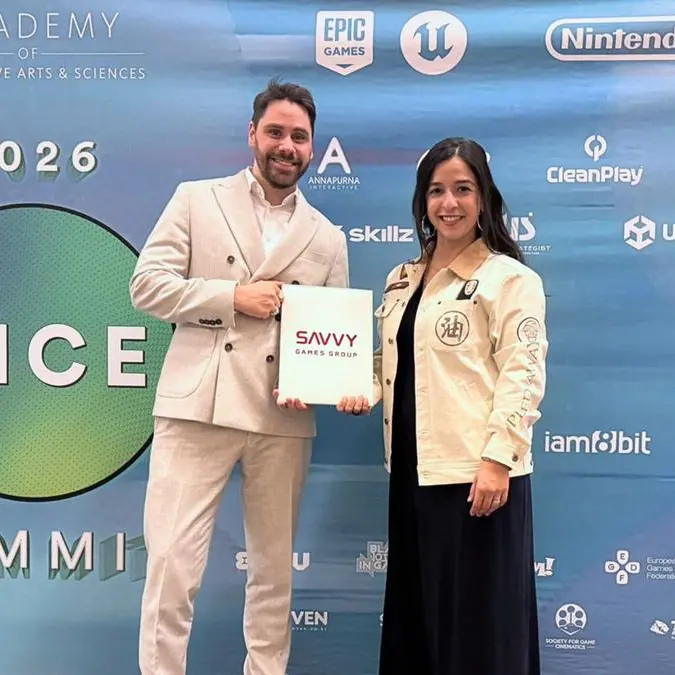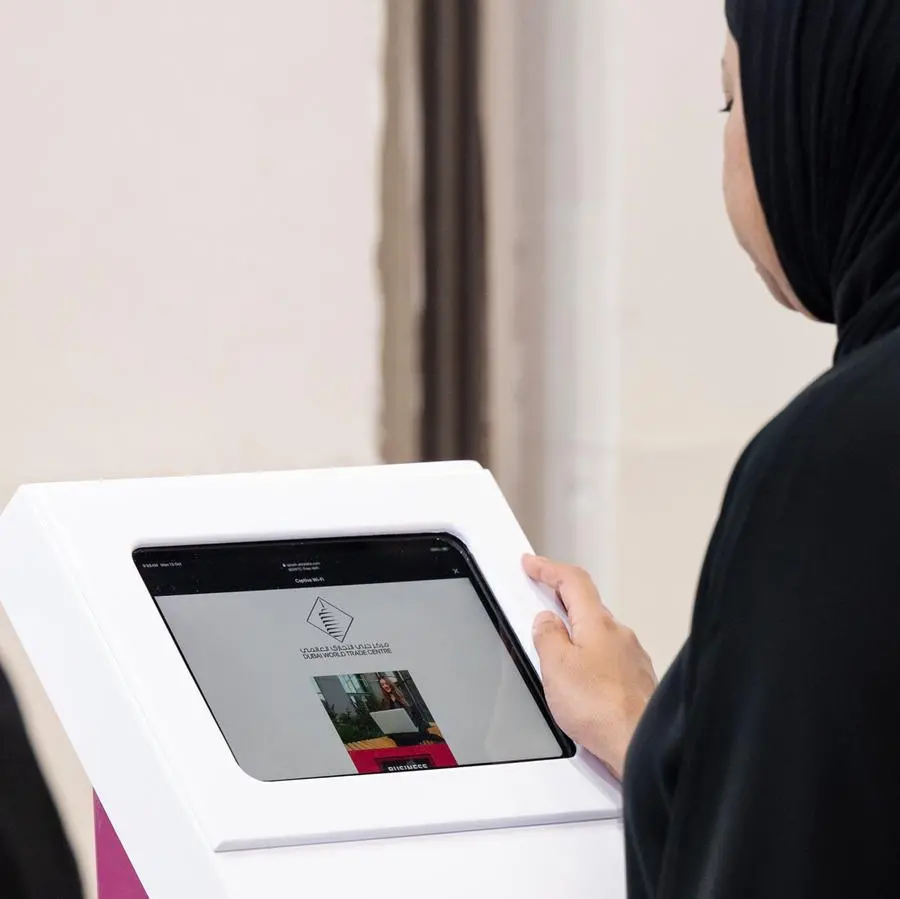Al Ain, UAE: Under the Patronage of His Highness Sheikh Tahnoun bin Mohammed Al Nahyan, Ruler's Representative – Al Ain Region, the 11th edition of Al Ain Book Fair got underway earlier this week, with the first seminar of the cultural programme taking place. The Fair, which is organised by the Department of Culture and Tourism - Abu Dhabi (DCT Abu Dhabi) will run until 3rd October.
The cultural programme began with a seminar entitled “Nabati and Standard Arabic Poetry... A Look Towards the Future,” which featured the participation of the poet Sheikha Al Mutairi and poet Dr. Talal Al Junaibi, with the seminar being conducted by Maryam Mahmoud, a student at Emirates University. Dr. Al Junaibi won the President's Award in 2015 for his intellectual, cultural, and social contributions, as well winning the Abu Dhabi Appreciation Award in the same year. Al Junaibi is also famous for his “vocal signature” style when reciting his poetry.
Al Mutairi is also a distinguished poet, who came second in the “Prince of Poets” TV contest, and was a winner of the Sharjah Award for Gulf Women’s Creativity. Her works have been translated into several languages including English, French, and German. She is currently the Director of the National Culture and Documents Department and Director of the Public Relations and Media Department at Juma Al Majid Centre for Culture and Heritage. She was awarded the title of Abu Dhabi Ambassador - Celebrity Category 2015, and received the award of the Wife of His Highness the President, Sheikha Shamsa bint Suhail for creative women, in addition to winning the Shield of Arab Achievers in Sharm El Sheikh in December 2016.
Dr. Al Junaibi began by saying time preserves poetry regardless of its genre or whether it is written in Standard Arabic, Nabati, classical style, or prose. Al Junaibi went on to recite a number of his own poems.
Al Mutairi talked about the book “Our Heritage of Folk Poetry” by the late poet Hamad Bushihab, which is one of the most important references in this field, and was responsible for inspiring her love and passion for folk poetry. She said her grandmother made her and her brother watch the TV programme “Sessions of Poets” when they were young, saying: “We knew these poets from a young age. We knew everything about them and learned from their prose, how their words have a special place in our hearts.”
Afterwards, Al Mutairi recited some of her poems, including some she performed on the “Prince of Poets” programme.
The seminar was followed by a musical event entitled “Shalla... Taghrooda... Cup of Coffee” in which artist Mohammed Al Badi performed a number of traditional and old Shala pieces, including Al Radeh, Al Taghrooda, Al Wana, and Al Tareq.
In addition to the poetry seminar, another session was held on Wednesday under the title “Readings into Emriati Women's Narrative” which was presented by Dr. Muna Al Saheli, along with four students from the Arabic Language Department at Emirates University: Fatima Al Ahbabi, Maryam Mahmoud, Maryam Al Saridi, and Wafaa Al Braiki.
Dr. Al Saheli talked about the beginning and inception of Emirati novels, noting that some scholars believe that Emirati novels have experienced a delayed growth in comparison to other literary genres. She also spoke about how Emirati women's novels specifically began to grow in popularity from the early 1990’s with “Angels and Devils” by Bassima Yunus. Other examples include Rashid Abdullah who wrote the novel Shahinda in 1971, and Ali Abu Al Reesh, in addition to short stories written by women such as: Shaikha Al Naji, Maryam Juma Faraj, and others.
Al Saheli added: “The contents and issues of women's literature are varied and diverse as society began to open up to a new and contemporary era with its needs and complications, and female writers gained more awareness and took control of their writing. The reader can find social issues, particularly those that affect women directly such as marriage, divorce, jealousy, marrying foreigners, women's education and work. Also to be found are issues with a critical aspect based on a civilised vision that seeks to break the old mentality that is subject to outdated customs and traditions, in addition to the issues of urbanisation of Emirati society and the phenomena it produces.”
Al Saheli said Emirati women writers used diverse techniques in their attempt to overcome prejudice by quickly mastering the use of contemporary types of narrative.
After that, the four students discussed four models of Emirati narratives: the novel “Acute Angle” by author and storyteller Fatima Sultan Al Mazroui; “Meats for Sale: Black Trade in the Streets of Cursed Markets” by Souad Al Shamesi; “Hermes Sultanate” by Reem Al Kamali; and “Bow of Sand: Comedy of Cradle and Water” by author Lulua Al Mansouri.
This session was followed by a musical performance entitled “The Poem in Arab Song” in which Oud player and vocalist Hashem Al Nafri performed a number of Arab songs based on poems by pioneers of modern Arabic poetry.
On Thursday, Al Ain Book Fair saw a number of diverse activities including a cultural seminar entitled: “How to Write Our History in a Novel? Al Ain as a Model” which saw the participation of Emirati poet and researcher Shaikha Al Jaberi, and Emirati novelist and storyteller Ali Al Humairi. This was followed by a musical performance entitled “Malayalam Music” featuring music and songs from the Indian state of Kerala, in addition to two activities at the Painters and Arts Corner entitled “Book of Jolly Faces” and “Nature in All Colours”. The Creativity Corner saw several activities, including a yoga session for children, a workshop for children on comic books and a meeting with author Sara Silis.
-ENDS-
About the Department of Culture and Tourism - Abu Dhabi
The Department of Culture and Tourism conserves and promotes the heritage and culture of Abu Dhabi emirate and leverages them in the development of a world-class, sustainable destination of distinction, which enriches the lives of visitors and residents alike. The organization manages the emirate’s tourism sector and markets the destination internationally through a wide range of activities aimed at attracting visitors and investment. Its policies, plans and programs relate to the preservation of heritage and culture, including protecting archaeological and historical sites and to developing museums, including Zayed National Museum, Guggenheim Abu Dhabi, and the Louvre Abu Dhabi. DCT - Abu Dhabi supports intellectual and artistic activities and cultural events to nurture a rich cultural environment and honour the emirate’s heritage. A key role is to create synergy in the destination’s development through close co-ordination with its wide-ranging stakeholder base.
© Press Release 2019Disclaimer: The contents of this press release was provided from an external third party provider. This website is not responsible for, and does not control, such external content. This content is provided on an “as is” and “as available” basis and has not been edited in any way. Neither this website nor our affiliates guarantee the accuracy of or endorse the views or opinions expressed in this press release.
The press release is provided for informational purposes only. The content does not provide tax, legal or investment advice or opinion regarding the suitability, value or profitability of any particular security, portfolio or investment strategy. Neither this website nor our affiliates shall be liable for any errors or inaccuracies in the content, or for any actions taken by you in reliance thereon. You expressly agree that your use of the information within this article is at your sole risk.
To the fullest extent permitted by applicable law, this website, its parent company, its subsidiaries, its affiliates and the respective shareholders, directors, officers, employees, agents, advertisers, content providers and licensors will not be liable (jointly or severally) to you for any direct, indirect, consequential, special, incidental, punitive or exemplary damages, including without limitation, lost profits, lost savings and lost revenues, whether in negligence, tort, contract or any other theory of liability, even if the parties have been advised of the possibility or could have foreseen any such damages.



















